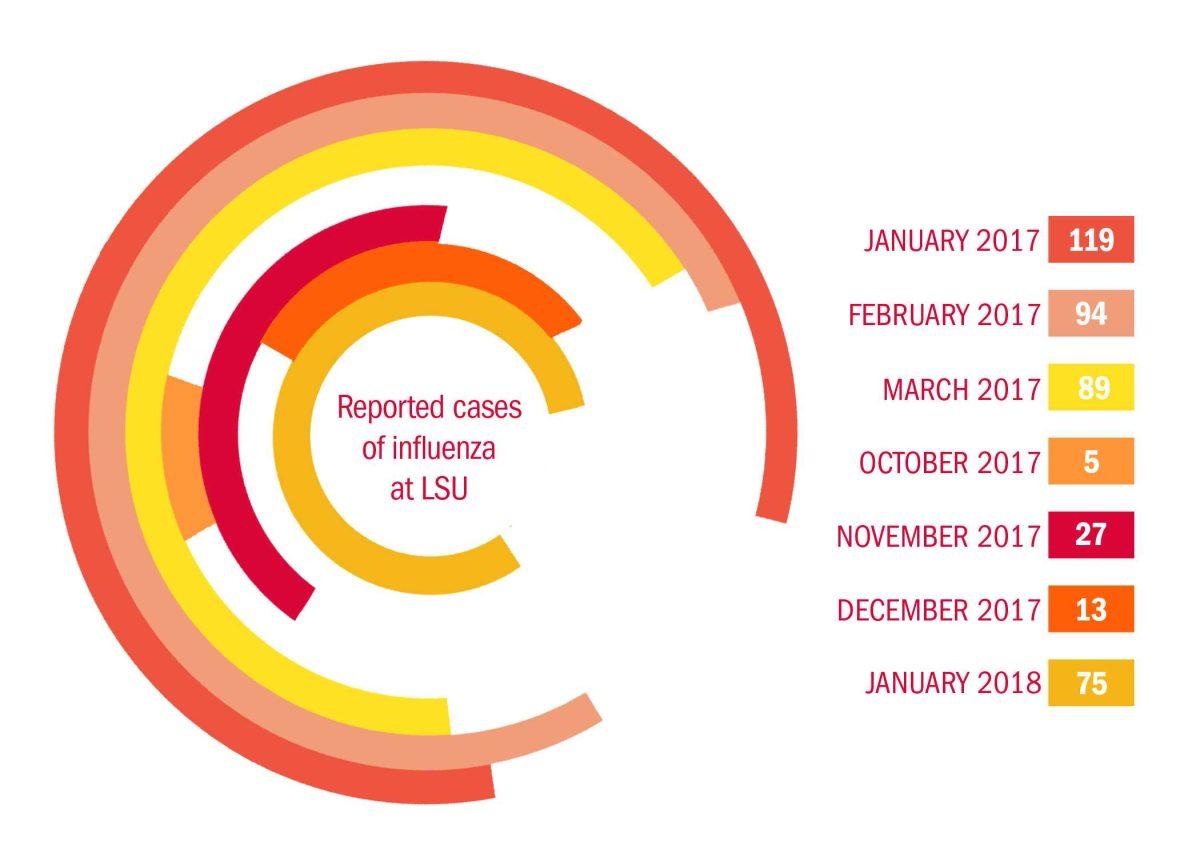Amidst one of the most widespread flu epidemics in recent history, the LSU Student Health Center reports the number of positive flu tests from students this season is on track to be lower than last year’s.
“The bad news is we definitely are seeing it,” said SHC Associate Director Julie Hupperich. “I guess the sort-of good news is the rate that we’re diagnosing it is not off the charts compared to previous years.”
Hupperich was relieved to see a decline in flu cases considering what health officials are seeing on the national scale. According to the Centers for Disease Control and Prevention’s official website, the flu is now widespread in every state in the U.S. except Hawaii. There have also been 37 influenza-associated pediatric deaths this season reported to the CDC.
The SHC provides flu shots to all full-time students for free, and only a $10 charge for part-time students. The vaccine is also typically available at any pharmacy or primary care physician. Although the flu shot does not guarantee immunity from the flu, it always offers a level of protection.
Hupperich stressed the importance of every University student taking advantage of the free flu shots provided by SHC.
“[Students] should definitely get the flu shot,” Hupperich said. “Even if you do contract the flu, it tends to be less severe if you’ve gotten the vaccine. Again, nobody wants to get the flu, but if the case is less severe, maybe you’re out of class for fewer days [and] your symptoms are less severe.”
The flu season officially began in October of 2017 and ends in April of this year. Since 1982, flu infections in the U.S. most often peaked in the month of February.
It is important to follow “general good health habits” to lessen the chances of contracting the virus, Hupperich said. This includes well-balanced meals, good sleeping habits, staying hydrated throughout the day and constant hand-washing.
“If [students] feel like they’re having symptoms of the flu, I would say get in to see your primary care clinician right away,” Hupperich said.
Full-time students already pay an SHC fee in their tuition, so a visit to the center is free of charge.
Hupperich offers additional advice on how to deal with the virus if contracted.
“I think many times students feel like they need to get to class,” Hupperich said. “Which I appreciate, but at the same time, number one, [you] need to take care of yourself and number two, it’s a public health issue.”
Given that the flu thrives in close communities, Hupperich emphasized the importance of staying home and protecting not only yourself, but the community around you.
“The tricky thing about a college setting is that you live in groups,” Hupperich said. “You go to class in groups. Many times, you’re in student organizations. Everything you do is in groups of people, so it makes it really easy to spread illness. If you are sick, stay home. Don’t expose your roommates or your classmates to the flu.”










